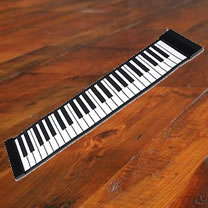
The Welsh word llawr [ɬau̯r] means floor, deck, gallery, stage, platform, cellar, basement, ground, face, and a few other things. I discovered today that it has cognates in all the other Celtic languages:
– leur (Cornish) = floor, ground
– leur (Breton) = area, ground, floor, soil
– lár (Irish) = ground, floor, middle, centre
– làr (Scottish Gaelic) = floor, ground, storey
– laare (Manx) = storey, deck, floor, bottom, flat, set, sill, level
These words all come from the Proto-Celtic *ɸlārom (floor), which comes from the Proto-Indo-European *pleh₂rom or *ploh₂rom, from *pleh₂- (to be flat).
THe PIE word *pleh₂- is the root of many other words, including:
– The English piano, plain, plan, floor and flake
– The Dutch vloer (floor, ground, surface)
– The German Flur (hall, hallway, corridor, stairwell)
– The Italian piano (flat, level, smooth, plane, softly, quietly)
– The Spanish llano (even, flat, level, plain) and plano (plain, level, flat)
– The Latvian: plats, plašs (wide, broad)
– The Lithuanian: platus (wide, broas)
– The Russian плоский (flat, plain, level)
Sources: Wiktionary, Geiriadur Prifysgol Cymru, Maga Cornish Dictionary / Gerlyver Kernewek, Dictionnaires bilingues de Francis Favereau, teanglann.ie, Am Faclair Beag, On-Line Manx Dictionary, Reverso
…and the Greek πλατύ ?
Latvian also has plāns (flat, thin)
Yes, that Greek word too.